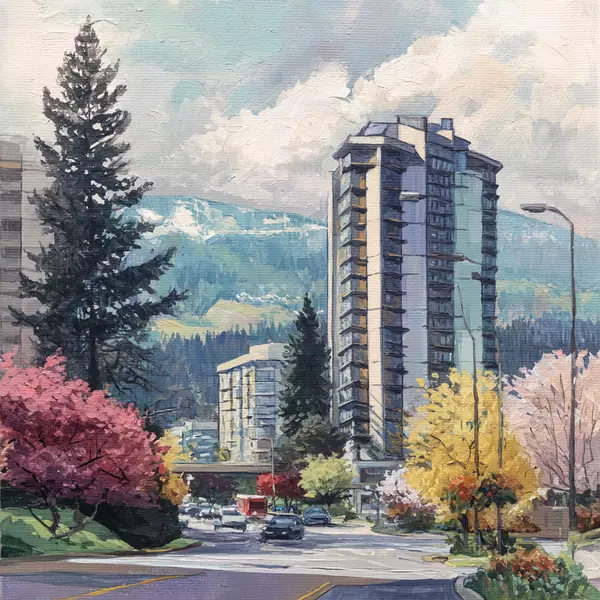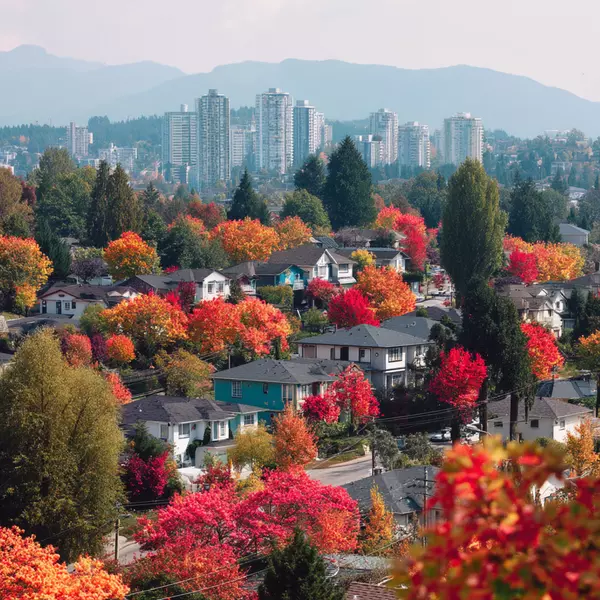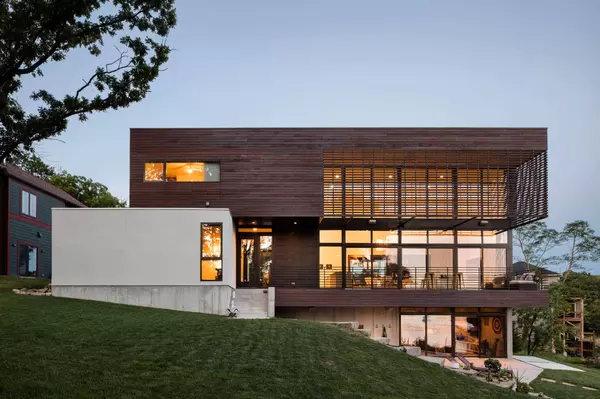15 Mistakes to Avoid in Burnaby Real Estate

Burnaby, a vibrant city nestled between Vancouver and the Fraser Valley, boasts a dynamic real estate market characterized by diverse neighborhoods, excellent transit connectivity, and a blend of urban and suburban living. From the bustling hubs of Metrotown and Brentwood to the serene residential enclaves of Deer Lake and Burnaby Heights, the city offers a wide array of housing options catering to various lifestyles and budgets.
As Burnaby continues to grow and attract both local and international buyers, navigating its real estate landscape can be both exciting and challenging. Whether you're a first-time homebuyer, a seasoned investor, or looking to relocate within the city, understanding the intricacies of the market is crucial.
Making informed decisions is paramount to ensuring a successful real estate transaction. Avoiding common pitfalls can save you time, money, and stress. This guide aims to highlight 15 common mistakes to steer clear of when engaging with Burnaby's real estate market, providing insights to help you make confident and informed choices.
Image: A panoramic view of Burnaby's skyline highlighting key neighborhoods such as Metrotown, Brentwood, and Deer Lake.
Mistake #1 – Skipping Local Market Research
Why Burnaby’s Neighborhoods Vary Greatly
Burnaby is a city of contrasts, with each neighborhood offering distinct characteristics that can significantly impact your real estate investment. For instance, North Burnaby is known for its quieter, family-friendly atmosphere, featuring more detached homes and green spaces. In contrast, South Burnaby, particularly areas like Metrotown, is bustling with high-density developments and offers greater convenience due to its proximity to transit and amenities.
Understanding these nuances is crucial. Factors such as school districts, future development plans, and community amenities can vary widely between neighborhoods, affecting property values and lifestyle. Without thorough local market research, you risk investing in an area that may not align with your long-term goals or yield the expected return on investment.
Mistake #2 – Working Without a Local Agent
Benefits of Hiring a Burnaby-Based Realtor
Engaging a local real estate agent provides invaluable advantages. These professionals possess in-depth knowledge of Burnaby's diverse neighborhoods, market trends, and pricing strategies. They can offer insights into hyperlocal factors that influence property values, such as upcoming infrastructure projects or changes in zoning laws
Moreover, local agents have established networks, granting you access to off-market listings and trusted service providers, including inspectors and contractors. Their familiarity with the community enables them to match clients with neighborhoods that best fit their lifestyle and investment objectives. Additionally, their negotiation skills and understanding of local market dynamics can be pivotal in securing favorable terms
How to Vet a Local Real Estate Professional
Selecting the right real estate agent is a critical step in your property journey. Consider the following when evaluating potential agents:
- Experience and Track Record: Inquire about the number of transactions they've completed in Burnaby and request references from past clients.
- Market Knowledge: Assess their understanding of specific neighborhoods, including recent sales, pricing trends, and future developments.
- Marketing Strategy: For sellers, ask about their approach to marketing properties, including the use of online platforms and social media.
- Professional Credentials: Verify their licensing status and check for any disciplinary actions.
- Communication Skills: Ensure they are responsive and can clearly explain processes and answer your questions.
A well-qualified local agent will not only facilitate a smoother transaction but also provide strategic advice tailored to the Burnaby real estate market.
Mistake #3 – Ignoring Pre-Approval and Financing Realities
The Risk of Shopping Without a Budget
Venturing into Burnaby's real estate market without a clear understanding of your financial boundaries can lead to disappointment and missed opportunities. Without a defined budget, you might fall in love with properties that are beyond your means, leading to wasted time and potential heartache. Moreover, in competitive markets, sellers often prioritize offers from buyers who have demonstrated financial readiness. Without pre-approval, your offer might be overlooked in favor of one backed by verified financing.
Pre-Approval vs. Pre-Qualification in BC
Understanding the distinction between pre-qualification and pre-approval is crucial for prospective homebuyers in British Columbia:
- Pre-Qualification: This is an initial assessment where lenders provide an estimate of the mortgage amount you might qualify for based on self-reported financial information. It doesn't involve a credit check or verification of income and assets. While useful for getting a general idea, it doesn't carry significant weight with sellers.
- Pre-Approval: This involves a comprehensive evaluation by the lender, including a credit check and verification of your financial documents. Upon successful assessment, you'll receive a pre-approval letter indicating the mortgage amount you're eligible for. This letter demonstrates to sellers that you're a serious buyer with confirmed financing, giving you a competitive edge in the market.
In BC's dynamic real estate landscape, obtaining a pre-approval before house hunting is highly recommended. It not only clarifies your budget but also positions you as a credible buyer in the eyes of sellers and real estate agents.
Mistake #4 – Overlooking Property Disclosures
What Sellers Must Disclose in BC
In British Columbia, while the Property Disclosure Statement (PDS) is not legally mandatory, it is commonly used in real estate transactions. The PDS requires sellers to disclose known defects or issues with the property, covering aspects like structural integrity, water damage, infestations, renovations, and compliance with local bylaws. Sellers are expected to answer these questions truthfully based on their knowledge. It's important to note that while the PDS provides valuable information, it doesn't replace the need for a professional home inspection.
Hidden Issues Common in Older Burnaby Homes
Burnaby's rich history means many homes, especially in established neighborhoods, are older and may harbor hidden issues. Common concerns include:
- Outdated Electrical Systems: Older homes might have knob-and-tube wiring, which can be a fire hazard and may not meet current electrical codes.
- Aging Plumbing: Galvanized steel pipes, common in older constructions, are prone to corrosion, leading to reduced water pressure and potential leaks.
- Foundation Settling: Over time, foundations can settle unevenly, causing structural issues that might not be immediately visible.
- Insufficient Insulation: Homes built decades ago often lack adequate insulation, leading to higher energy bills and reduced comfort.
Given these potential issues, it's imperative for buyers to conduct thorough due diligence. Engaging a qualified home inspector can uncover hidden problems, allowing for informed decision-making and potential negotiations with the seller.
Mistake #5 – Timing the Market Poorly
When’s the Best Time to Buy or Sell in Burnaby?
Burnaby's real estate market exhibits seasonal trends that can influence buying and selling decisions. Typically, the spring months (March to May) see increased activity, with more listings and higher sales volumes, as buyers aim to settle before summer. Summer often maintains this momentum, while fall experiences a slight slowdown. Winter months, particularly December and January, usually witness reduced market activity due to holidays and inclement weather.
Understanding these patterns can help buyers and sellers strategize effectively. For instance, sellers might achieve better prices during peak seasons, while buyers could find more negotiating power during slower periods.
Chart: Burnaby home sales volume by season over the past three years.
Dangers of Trying to “Time It Perfectly”
Attempting to time the market precisely is fraught with challenges. Market conditions are influenced by numerous unpredictable factors, including economic shifts, interest rate changes, and global events. Waiting for the "perfect" moment can lead to missed opportunities, especially if prices rise or competition increases. Instead of trying to predict market movements, focus on your personal readiness and long-term goals. Consulting with a local real estate professional can provide insights tailored to your specific situation, ensuring informed decisions regardless of market timing.
Mistake #6 – Underestimating Closing Costs
What Buyers Often Forget to Budget For
Many buyers concentrate on the purchase price and down payment, overlooking additional expenses that arise during the closing process. These can include:
- Property Transfer Tax (PTT): In British Columbia, this tax is calculated as 1% on the first $200,000, 2% on the portion between $200,000 and $2 million, and 3% on amounts over $2 million. For properties over $3 million, an additional 2% applies to the portion above that threshold.
- Legal and Notary Fees: Essential for handling the legal aspects of the transaction, these fees typically range from $800 to $2,500.
- Home Inspection and Appraisal Fees: While optional, these services are recommended to assess the property's condition and value.
- Title Insurance: Provides protection against potential title issues; costs vary based on the property's value.
- GST: Applicable to new homes, the Goods and Services Tax is 5% of the purchase price.
- Insurance Premiums: Lenders often require buyers to have home insurance in place before closing.
Collectively, these costs can add up to 2-5% of the property's purchase price.
Common Fees in Burnaby Transactions
In addition to the aforementioned expenses, buyers in Burnaby should be aware of:
- Mortgage Insurance: If your down payment is less than 20%, lenders typically require mortgage insurance, which can range from 0.6% to 3.85% of the mortgage amount.
- Adjustment Costs: These cover prepaid expenses by the seller, such as property taxes or utility bills, which the buyer reimburses proportionally.
- Moving Expenses: Costs associated with relocating, which can vary based on distance and services used.
Being prepared for these additional costs ensures a smoother transaction and helps prevent financial surprises at closing.
Mistake #7 – Not Conducting a Proper Home Inspection
What to Inspect in Burnaby Homes
Burnaby's diverse housing stock, ranging from mid-century bungalows to newer condos, presents unique challenges that necessitate thorough home inspections. Key areas to focus on include:
- Drainage and Moisture Control: Burnaby's wet climate can lead to water accumulation around foundations. Inspect for proper grading, functioning gutters, and signs of water intrusion in basements.
- Foundation Integrity: Look for cracks, uneven floors, or doors that don't close properly, which may indicate settling or structural issues.
- Roof Condition: Assess the age and state of the roof, checking for missing shingles, leaks, or sagging areas that could lead to water damage.
- Electrical Systems: Older homes may have outdated wiring, such as knob-and-tube, which can pose fire hazards and may not meet current codes.
- Plumbing: Check for signs of corrosion, leaks, or outdated materials like galvanized pipes that can affect water quality and pressure.
- Air Quality: Inspect for mold, mildew, and adequate ventilation, especially in areas prone to dampness.
Red Flags You Shouldn’t Ignore
Certain issues uncovered during inspections can have significant implications:
- Persistent Dampness or Mold: Indicates ongoing moisture problems that can affect health and structural integrity.
- Structural Cracks: Large or widening cracks in walls or foundations may signal serious structural concerns.
- Outdated Electrical Panels: Old or overloaded panels can be fire hazards and may require costly upgrades.
- Roof Damage: Signs of water intrusion or extensive wear can lead to expensive repairs.
- Pest Infestations: Evidence of termites or rodents can indicate hidden damage and health risks.
Addressing these red flags promptly can prevent future expenses and ensure the safety and longevity of your investment.
Mistake #8 – Poor Offer Strategy
How to Make Competitive Yet Smart Offers
In Burnaby's competitive real estate market, crafting a compelling offer requires a balance of attractiveness and prudence:
- Pre-Approval: Secure mortgage pre-approval to demonstrate financial readiness and strengthen your offer.
- Market Analysis: Work with your agent to understand the property's market value and recent comparable sales.
- Flexible Terms: Offering a convenient closing date or minimal contingencies can make your offer more appealing.
- Personal Touch: Including a heartfelt letter to the seller can create an emotional connection, potentially giving you an edge in multiple-offer situations.
Why Overbidding Is a Common Regret
While it's tempting to outbid competitors, overbidding can lead to buyer's remorse and financial strain:
- Appraisal Issues: If the property's appraised value is lower than your offer, securing financing for the full amount may be challenging.
- Resale Concerns: Overpaying can make it difficult to recoup your investment if market conditions change.
- Financial Stress: Higher monthly payments can impact your lifestyle and limit future financial flexibility.
It's crucial to set a maximum budget and adhere to it, ensuring that your offer aligns with both market value and personal financial comfort.
Mistake #9 – Misjudging the Condo Market
Understanding Strata Fees and Rules
In Burnaby, purchasing a condo means becoming part of a strata corporation, which entails shared ownership of common areas and adherence to collective responsibilities. Monthly strata fees, typically ranging from $200 to $600 depending on factors like unit size, building age, and amenities, cover expenses such as building insurance, maintenance of common areas, utilities, and contributions to the contingency reserve fund.
It's crucial to recognize that lower strata fees aren't always advantageous. Some developers may initially set fees low to attract buyers, potentially leading to underfunded reserves and deferred maintenance. This scenario can result in higher costs down the line.
Additionally, strata corporations enforce bylaws and rules governing aspects like pet ownership, rental policies, noise levels, and use of common facilities. Before purchasing, review these documents thoroughly to ensure they align with your lifestyle and expectations.
Special Assessments and Their Financial Impact
A special assessment is a one-time fee levied on condo owners to cover unexpected expenses or significant repairs not accounted for in the regular budget. These assessments can be substantial, sometimes amounting to tens of thousands of dollars per unit, especially in cases like major building envelope repairs or infrastructure upgrades.
Such assessments often arise when the contingency reserve fund is insufficient to cover unforeseen costs. To mitigate this risk, examine the strata's financial statements and depreciation reports to assess the health of the reserve fund and anticipate potential future expenses.
Mistake #10 – Not Reading Strata Minutes Carefully
Common Issues Found in Meeting Notes
Strata meeting minutes are a valuable resource for uncovering ongoing or potential issues within a condominium complex. Common concerns documented in these notes include:
- Pending litigation or legal disputes involving the strata corporation.
- Discussions about upcoming major repairs or maintenance projects.
- Reports of noise complaints, security issues, or resident disputes.
- Financial challenges, such as budget shortfalls or considerations for increasing strata fees.
Reviewing these minutes can provide insight into the community's dynamics and potential red flags that may affect your decision to purchase.
How to Analyze Minutes Effectively
To conduct a thorough review of strata meeting minutes:
- Request Comprehensive Records: Obtain at least the past two years of strata council meeting minutes, annual general meeting (AGM) minutes, and any special general meeting (SGM) records.
- Identify Recurring Themes: Look for repeated discussions on specific issues, such as elevator malfunctions or roof leaks, which may indicate unresolved problems.
- Assess Financial Health: Examine notes on budget approvals, reserve fund contributions, and any mentions of special assessments to gauge the strata's financial stability.
- Evaluate Community Relations: Be attentive to the tone and frequency of resident complaints or conflicts, as these can reflect the overall harmony within the community.
- Consult Professionals: Consider having a real estate lawyer or experienced realtor review the documents to identify any concerns you might have missed.
Diligently analyzing strata minutes can reveal critical information about the property's management and potential future obligations, enabling you to make an informed purchasing decision.
Mistake #11 – Being Too Emotionally Attached
Emotional Buyers and Sellers Make Costly Choices
In Burnaby’s competitive real estate market, it's easy to let emotions drive decisions. Buyers may overextend financially to secure a dream home, while sellers might overprice due to sentimental value. Such emotional decisions can lead to financial strain or prolonged time on the market. It's crucial to approach transactions with a clear, objective mindset to avoid these pitfalls.
How to Stay Objective in a Hot Market
To maintain objectivity:
- Set Clear Criteria: Define your must-haves and deal-breakers before starting your search.
- Stick to Your Budget: Determine your financial limits and avoid exceeding them, even in bidding wars.
- Consult Professionals: Rely on your real estate agent's expertise to assess property value and market conditions.
- Take Your Time: Avoid rushing into decisions; take the necessary time to evaluate each property thoroughly.
By following these strategies, you can make informed decisions that align with your long-term goals.
Mistake #12 – Ignoring Zoning and Bylaws
How Zoning Impacts Future Use
Burnaby's zoning regulations dictate how properties can be used and developed. Recent changes have consolidated previous residential zones into the R1 Small-Scale Multi-Unit Housing District (SSMUH), allowing for increased density in certain areas. Understanding these regulations is essential, especially if you plan to renovate, add rental units, or redevelop a property. Failing to consider zoning can lead to costly mistakes and legal issues.
Common Bylaw Issues in Burnaby
Buyers should be aware of common bylaw concerns, including:
- Unauthorized Suites: Ensure any secondary suites are permitted and meet city standards.
- Illegal Structures: Check that all additions or modifications have the necessary permits.
- Occupancy Limits: Be aware of restrictions on the number of occupants in a dwelling.
- Noise and Parking Regulations: Understand local rules to avoid fines or disputes with neighbors.
Before purchasing, review the property's compliance with local bylaws and consult with city officials or a real estate lawyer if needed.
Mistake #13 – Forgetting to Check Transit and School Zones
Why Location Matters More Than You Think
In Burnaby, proximity to transit and school zones significantly influences property value and livability. Homes near SkyTrain stations or frequent bus routes often command higher prices due to increased accessibility. Similarly, properties within desirable school catchment areas are in high demand among families, impacting both resale value and rental potential. Overlooking these factors can lead to unexpected challenges, such as longer commutes or difficulties in school enrollment.
How to Use Burnaby’s City Tools for Research
The City of Burnaby offers several online tools to assist homebuyers in researching transit and school zones:
- BurnabyMap: An interactive mapping application that provides detailed information on property zoning, transit routes, and other municipal data.
- Burnaby School District Maps: These maps delineate school catchment areas, helping buyers determine which schools serve specific neighborhoods.
Utilizing these resources can help buyers make informed decisions about location, ensuring alignment with lifestyle needs and future plans.
Mistake #14 – Poor Renovation Planning Post-Purchase
Permit Pitfalls in Burnaby
Undertaking renovations without proper permits in Burnaby can lead to significant issues, including fines, project delays, and complications during resale. The City of Burnaby mandates permits for various types of work, such as:
Structural Changes: Altering the building's structure, including adding or removing walls.
- Plumbing and Electrical Work: Modifying existing systems or installing new ones.
- Secondary Suites: Creating additional living units within a property.
Before commencing any renovation, it's crucial to consult the city's guidelines and obtain the necessary approvals to ensure compliance with local regulations.
Common Renovation Regrets in the Region
Homeowners in Burnaby often encounter challenges during renovations that could have been avoided with proper planning:
- Hiring Unlicensed Contractors: Engaging unqualified professionals can result in substandard work and safety hazards.
- Neglecting Moisture Issues: Failing to address underlying moisture problems, especially in basements, can lead to mold and structural damage.
- Underestimating Costs and Timelines: Inadequate budgeting and unrealistic timelines often lead to project overruns and stress.
To avoid these pitfalls, homeowners should conduct thorough research, hire licensed professionals, and plan renovations meticulously, considering both current needs and future resale implications.
Mistake #15 – Not Thinking Long-Term
How to Factor in Resale Value
When purchasing a home in Burnaby, it's essential to consider not just your immediate needs but also the property's potential resale value. Several factors can influence this, including:
- Location: Proximity to public transit, reputable schools, and amenities can significantly enhance a property's appeal.
- Neighborhood Trends: Areas undergoing revitalization or with planned developments may see increased property values over time.
- Property Size and Layout: Homes with functional layouts and adequate square footage tend to attract a broader range of buyers.
- Maintenance and Upgrades: Regular upkeep and modern improvements can preserve and even boost a home's market value.
By evaluating these aspects, you can make informed decisions that align with both your current lifestyle and future financial goals.
Buying for Today vs. Planning for 5–10 Years Out
It's common for buyers to focus on their present circumstances, but considering how your needs may evolve is crucial.
- Family Growth: If you plan to expand your family, ensure the home has sufficient space and is in a suitable school district.
- Career Changes: A potential job relocation might necessitate easy access to major transportation routes.
- Aging in Place: Features like minimal stairs and accessible bathrooms can accommodate future mobility needs.
By anticipating these changes, you can select a property that remains suitable and valuable throughout different life stages.
Conclusion
Navigating Burnaby's real estate market requires careful planning and awareness of common pitfalls. Key mistakes to avoid include:
- Skipping thorough market research
- Neglecting financial preparedness
- Overlooking property disclosures and inspections
- Making emotionally driven decisions
- Ignoring long-term considerations
Final Tips:
- Stay Informed: Regularly monitor market trends and updates specific to Burnaby.
- Consult Local Professionals: Engage with experienced real estate agents, inspectors, and legal advisors familiar with the area.
- Avoid Rushing: Take the time to thoroughly assess each property and how it aligns with your long-term objectives.
By approaching your home purchase with diligence and foresight, you can make choices that serve your immediate needs and future aspirations.
FAQs
What is the average price of a detached home in Burnaby right now?
As of April 2025, the benchmark price for a single-family detached home in Burnaby varies by area:
- Burnaby South: Approximately $2,238,900
- Burnaby North: Around $2,163,600
- Burnaby East: Close to $1,994,800
These figures reflect the current market trends and can fluctuate based on various factors, including location and property features.
Are Burnaby property taxes higher than Vancouver’s?
No, Burnaby's property tax rate is slightly lower than Vancouver's. In 2024, Burnaby's residential property tax rate was 0.283470%, while Vancouver's was 0.296818% . However, the actual amount paid can vary depending on the assessed value of the property and additional fees.
Can I buy a home in Burnaby as a non-resident?
Yes, non-residents can purchase property in Burnaby. However, it's important to be aware of additional taxes that may apply, such as the Foreign Buyers' Tax, which imposes a 20% surcharge on the purchase price for foreign nationals, foreign corporations, and taxable trustees in certain areas of British Columbia, including Burnaby. Additionally, the Underused Housing Tax may apply to certain non-resident owners of residential property. It's advisable to consult with a local real estate professional or legal advisor to understand all applicable taxes and regulations.
What’s the best way to find Burnaby zoning information?
The City of Burnaby provides several tools to help residents and prospective buyers understand zoning regulations:
- BurnabyMap: An interactive map that displays zoning information, property details, and other relevant data.
- Zoning Bylaw Documents: Available on the city's official website, these documents outline the specific regulations for each zoning category.
- Planning Department: For personalized assistance, you can contact the city's Planning Department directly.
These resources can be accessed through the City of Burnaby's official website.
Is Burnaby a good place to invest in real estate long-term?
Burnaby is considered a strong market for long-term real estate investment due to several factors:
- Strategic Location: Proximity to Vancouver and access to major transportation routes make it a desirable area for residents and businesses.
- Economic Growth: Ongoing developments and a robust local economy contribute to property value appreciation.
- Diverse Housing Options: From single-family homes to condominiums, Burnaby offers a range of housing types to meet various investment strategies.
As with any investment, it's important to conduct thorough research and consult with real estate professionals to make informed decisions.
Categories
Recent Posts










"My job is to find and attract mastery-based agents to the office, protect the culture, and make sure everyone is happy! "